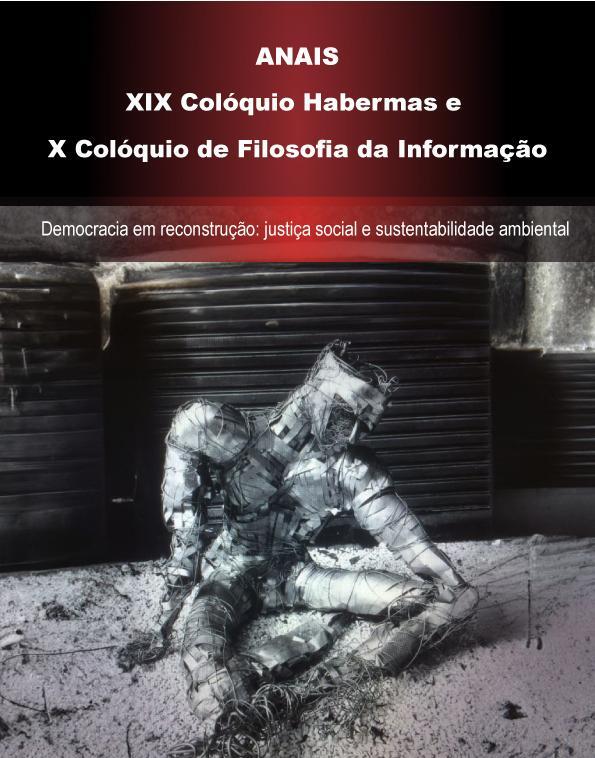The The New Middle Education System in Brazil and its impacts on the citizenship of public school students: The Habermasian perspective
The Habermasian Perspective
DOI:
https://doi.org/10.21728/logeion.2023v10nesp2.p371-386Keywords:
High school; Citizenship; PolicyAbstract
This work analyzes the potential impacts of the so-called New Secondary Education on student training, especially in preparation for exercising active citizenship. Established with Law 13,415, of February 16, 2017, the secondary education reform intends three fundamental changes: the first, to promote the progressive increase in the minimum school workload until reaching full-time. The second change, creating “training itineraries”, with new subjects, relatively reducing the load of mandatory content, and allowing students to orient their school trajectory towards their interests, inclinations and personal needs. The third, encourage and expand the offer of technical education. Our evaluation about the reform will be anchored in Habermas' understanding that qualified participation in public debate requires individuals to develop and use expressive skills recognized (legitimized) by the interpretive community. Formal education, from this perspective, by disseminating the bases for the rational arguments and legitimate means for expressing one's will, aims to enable and qualify the participation of individuals in the public debate. The partial conclusions resulting from this approach are based on an empirical study carried out at the Reverend Hugh Clarence Tucker State School, in Rio de Janeiro. They indicate that, although recent and incomplete, changes in secondary education have the potential to worsen social differences between poor and rich students since elite private schools are better materially prepared to act in this ambient. Furthermore, they have better paid professionals who are charged with measurable results by school administration and families.
Downloads
References
BERGER, P e LUCKMAN, T. A Construção Social da Realidade. Petrópolis: Editora Vozes, 1981.
BARBOZA, A. “Salários Docentes, Financiamento e Qualidade da Educação no Brasil”. Educação & Realidade, Porto Alegre, v. 39, n. 2, p. 511-532, abr./jun. 2014. Recuperado de https://www.scielo.br/j/edreal/a/hXQRPMQQwZwJJg7zcD6Dkpx/?format=pdf&lang=pt
BARROS, A. “Vestibular e Enem: um debate contemporâneo”. Ensaio: aval. pol. públ. Educ., Rio de Janeiro, v.22, n. 85, p. 1057-1090, out./dez. 2014. Recuperado de: https://www.scielo.br/j/ensaio/a/HgxYNwjGpjYVN3K5yZSRfLJ/?format=pdf&lang=pt
CASTRO, Rodrigo Machado Gecele e CUNHA, Erika Conceição Gelenske. In: Turistificação de Espaços: como os moradores da zona portuária enxergam a turistificação de seus bairros. Recuperado de: https://www.ucs.br/site/midia/arquivos/turistificacao.pdf.
DIAS, B. F. B.., MORAES, J.., & FERREIRA, A.. (2020). Gastos públicos estaduais com o ensino fundamental: uma análise de correlação e efetividade. Pesquisa E Debate Em Educação, 5(1), 15–27. Recuperado de https://periodicos.ufjf.br/index.php/RPDE/article/view/31959
FRANCA, Maíra, P. Perspectiva do investimento público em educação: é possível alcançar 10% do PIB? In: Center for Studies on Inequality and Development. Texto para Discussão No 74 – Março 2013.
HABERMAS, Jurgen. Direito e Democracia: entre facticidade e validade. Vols. I e II. Rio de Janeiro: Tempo Universitário, 2003.
_____________________. Pensamento pós-metafísico: estudos filosóficos. 2. ed. Rio de Janeiro: Tempo Brasileiro, 2002.
MELLO, Marcelo Pereira de. Sociologia do Direito de Max Weber: O Método Caleidoscópio. Cadernos de Direito FESO, ano v, número 7, 2004.
MÜHL, Eldon Henrique. Habermas e a educação: racionalidade comunicativa, diagnóstico crítico e emancipação. In: Educ. Soc. 32 (117) • dez 2011 https://doi.org/10.1590/S0101-73302011000400008
RIBEIRO, R., NEDER, Henrique D. “Juventude(s): desocupação, pobreza e escolaridade”. In: Nova Economia, Belo Horizonte 19 (3) 475-506, setembro-dezembro de 2009.
SALVATO, Marcio A., FERREIRA, Pedro C.G., DUARTE, Angelo José, M. “O Impacto da escolaridade sobre a distribuição de renda”. In: Est. econ., São Paulo, 40(4): 753-791, out.-dez. 2010. https://doi.org/10.1590/S0101-41612010000400001
SILVA, Anna L., MOTA, Renata O., LIMA, João C. F., Queiroz, Fernanda, C.B.P., NORONHA, Samara L. A INFLUÊNCIA DA ESCOLARIDADE DOS PAIS E DA RENDA FAMILIAR NO DESEMPENHO DOS CANDIDATOS DO ENEM. In: XXXVII ENCONTRO NACIONAL DE ENGENHARIA DE PRODUCAO “A Engenharia de Produção e as novas tecnologias produtivas: indústria 4.0, manufatura aditiva e outras abordagens avançadas de produção.
VASCONCELOS, J.C., LIMA, Patrícia V.P.S., ROCHA L. A., KHAN, A.S. Infraestrutura escolar e investimentos públicos em Educação no Brasil: a importância para o desempenho educacional. In: Ensaio: aval. pol. públ. Educ., Rio de Janeiro, v.29, n.113, p. 874-898, out./dez. 2021.
SCHUTZ, Alfred. O estrangeiro. Revista Espaço Acadêmico. São Paulo, n.13, outubro de 2010.
WEBER, Max. Economia e Sociedade. Brasília – DF: Editora Universidade de Brasília, 1999.
Sites consultados:
Downloads
Published
Issue
Section
License
Copyright (c) 2023 Logeion: Filosofia da Informação

This work is licensed under a Creative Commons Attribution-NonCommercial-ShareAlike 4.0 International License.
The journal is published under the Creative Commons - Attribution - Noncommercial - Share Alike 3.0 Brazil.
The published work is considered collaboration and therefore the author will not receive any remuneration for this as well as anything will be charged in exchange for publication.
All texts are responsibility of the authors.
It’s allowed partial or total reproduction of the texts of the magazine since the source is cited.




